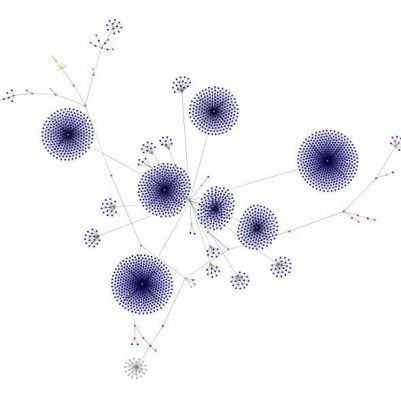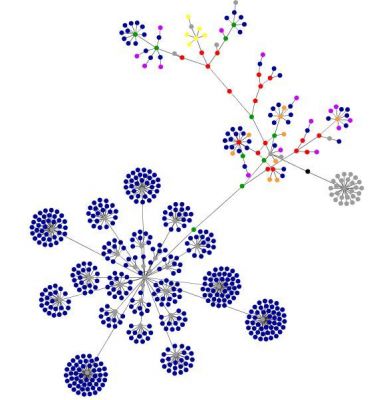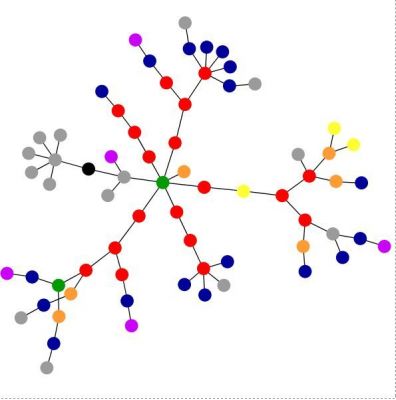
image: brewbetter
Prof. Hofstadter:
1. Consider "The set of all sets which Douglas Hofstadter is considering at the moment." How many elements does this set contain?
The answer would seem to be One (assuming you weren't in the middle of a discussion of any other set); namely, itself. And yet, whenever you stop reading this post and turn to other things, the answer will be Zero. Unless you pause to reflect on the answer having switched to Zero, in which case, it will be One.
A quick modification universalizes the situation: let NOW be "the set of all sets which are being considered at the moment." This set contains *at least* One element--itself--but at some future point, may contain Zero elements. (Nor is the whole construction self-erasing, as NOW still exists when no one is considering it; it just contains nothing.)
Indeed, there's an oddly waveform-like quality to such sets, such that they cannot ever be "observed" to contain no elements; and yet, by inference, we can know that, in their "unobserved" state, they must.
But how can a mathematical object--which many would regard as unchanging, static, true entities; a vision, for Platonists (of whom Gödel was one), of eternal and necessary relationships--have this Copenhagen-esque quality?
Can the fact of inquiry--interaction; the forming of information--effect not only physical systems, as in waveform collapse, but mathematical truths as well?
(Indeed, if the cosmos is mathematically reductive, must this not be the case? For in that world, physical phenomena are the same thing as math, so a mirroring effect will apply: what is true of photons must be true, at some suitably basic level, of mathematics.)

2. While we are chatting, consider "The set of all sets which are being considered today and only today." (Plenty of sets are under consideration today, but none of them are members of this set, call it TDY, because they have all been considered on previous days as well. Even if a logician somewhere has just constructed a new set, that set does not belong in TDY, as it will be under consideration from now on.)
TDY would likewise seem to contain One element today--itself--and Zero elements tomorrow. But matters are stranger for TDY than for NOW. Because when you wake up tomorrow, Prof. Hofstadter, and "check," there will be no such set as TDY (that set you will be thinking about when you check, you also thought about yesterday, which means it isn't that set). It's not that TDY will be empty, or even that it will have ceased to exist as a set; it cannot even be thought about.
The very "eternally true" nature of mathematical objects, it seems, leads paradoxically to this one's disappearance, as it will block us even from saying that TDY *was* the set under consideration yesterday. That set cannot be TDY, by definition; and, since mathematical objects are nothing other than their logical definitions, the eternal set TDY both has and does not have an existence.

Mere word games? Perhaps. (Or concept games.) Most readers will quickly dismiss such ideas out of hand: "You can't define a set that way." But is such a contrivance any less valid than Bertrand Russell's "The Set of All Sets Which Don't Include Themselves As Members"? The later convolution was constructed exactly to pursue the inherent limits of logical definition, and its famous resulting paradox ("Does this set contain itself?") revealed the incompletion of Cantor's set theory.
FQXi fans await your reply.